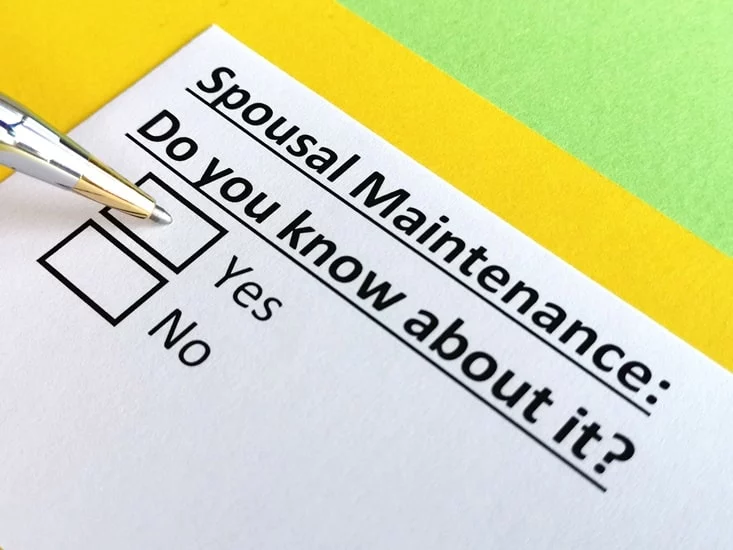- 01 Mar 2021
- •
- 3 min read
What you need to know about spousal maintenance

Spousal maintenance can be a very daunting concept to married couples who are separating. We share some common questions that are raised by our clients, to de-bunk some of the myths surrounding this topic.
What is spousal maintenance?
Spousal maintenance is a payment made by a husband or wife to the former spouse, to provide financial support each month. Upon separation or commencing divorce proceedings, the couple will need to consider and reach agreement in relation to what shall happen to their finances. This will involve what should happen to the family home, any pensions, and also whether one person should pay spousal maintenance to the other.
How much spousal maintenance will I need to pay?
Spousal maintenance is not calculated based on a fixed formula. Instead this should be considered bearing in mind the financial ’need’ the person has for it, and also the ability of the other person to pay it.
As such, financial information will be required from both people, to understand what income is being received, to consider whether all sources of income are being maximised (such as through paid employment, benefits, etc) and to compare this against the reasonable outgoings that they are facing.
How long will I need to pay spousal maintenance for?
Spousal maintenance will automatically end upon death or the remarriage of the person receiving it. It is possible to agree other “triggers” which would end the payment of spousal maintenance, such as when the youngest child of the family turns 18 years old, or when the family home is sold.
The Court is always keen for the parties to achieve financial independence, and so although spousal maintenance can be paid for long periods of time, such Orders are becoming less common.
Once spousal maintenance has come to an end, a financial “clean break” is usually then put in place, which would prevent either party from making any further financial claims against the other in life or upon death.
Is a claim for spousal maintenance impacted by the contents of the divorce petition (such as adultery or “unreasonable behaviour”)?
No – the behaviour of the parties which may bring about grounds for divorce does not impact the financial arrangements, except for in very rare circumstances.
Usually the divorce proceedings and financial arrangements are kept entirely separate. Instead the terms of a financial settlement are based upon numerous factors set out in the Matrimonial Causes Act 1973. These include:
- The income, earning capacity, property and other financial resources which each of the parties to the marriage has or is likely to have in the foreseeable future
- The financial needs, obligations and responsibilities which each party has or is likely to have in the foreseeable future
- The standard of living enjoyed by the family before the breakdown of the marriage
- The age of each party to the marriage and duration of the marriage
- Any disability of either party
- The contributions each of the parties has made or is likely in the foreseeable future to make
- In some circumstances, the conduct of the parties
- The value of any benefit that would be lost by divorce
These are known as the ‘Section 25’ factors.
Can I vary the amount of spousal maintenance?
Spousal maintenance can be varied. If there are significant changes to your personal circumstances, which impact your earning capacity or overall financial circumstances, spousal maintenance is capable of being varied either upwards or downwards.
Will I have to pay spousal maintenance, if I pay child maintenance?
Child Maintenance is statutory and is governed by the Child Maintenance Service. Child maintenance is the regular payment of funds to support children of separated parents. It is typically paid by the “non-resident” parent. In comparison, spousal maintenance is paid to an ex-partner, in their own right, in addition to any child maintenance.
It is always important to take legal advice when looking at financial arrangements upon divorce or separation, so that your individual circumstances can be taken into consideration.
For further information or a free initial consultation, please contact one of our Trethowans’ Family team today on 0800 2800 421 or contact us here.





